Refine listing
Actions for selected content:
31 results in Cambridge Elements

Policy Experiments
- A View From Elsewhere
- Coming soon
-
- Expected online publication date:
- May 2026
- Print publication:
- 31 May 2026
-
- Element
- Export citation

Taxation and Social Policy
- Financing the Welfare State
- Coming soon
-
- Expected online publication date:
- February 2026
- Print publication:
- 28 February 2026
-
- Element
- Export citation

Artificial Intelligence and Public Policy
-
- Published online:
- 15 December 2025
- Print publication:
- 22 January 2026
-
- Element
- Export citation
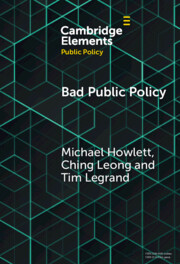
Bad Public Policy
- Malignity, Volatility and the Inherent Vices of Policymaking
-
- Published online:
- 07 April 2025
- Print publication:
- 08 May 2025
-
- Element
-
- You have access
- Open access
- HTML
- Export citation
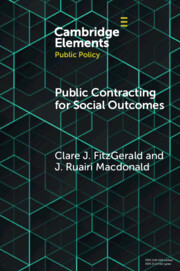
Public Contracting for Social Outcomes
-
- Published online:
- 12 December 2024
- Print publication:
- 12 December 2024
-
- Element
-
- You have access
- Open access
- HTML
- Export citation
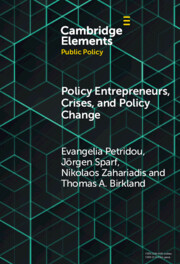
Policy Entrepreneurs, Crises, and Policy Change
-
- Published online:
- 10 December 2024
- Print publication:
- 16 January 2025
-
- Element
-
- You have access
- Open access
- HTML
- Export citation
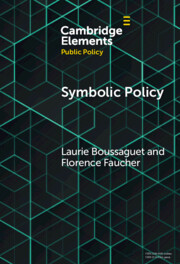
Symbolic Policy
-
- Published online:
- 30 November 2024
- Print publication:
- 02 January 2025
-
- Element
- Export citation
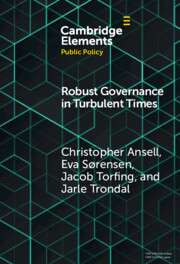
Robust Governance in Turbulent Times
-
- Published online:
- 26 April 2024
- Print publication:
- 16 May 2024
-
- Element
-
- You have access
- Open access
- HTML
- Export citation
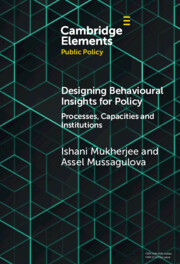
Designing Behavioural Insights for Policy
- Processes, Capacities & Institutions
-
- Published online:
- 24 April 2024
- Print publication:
- 16 May 2024
-
- Element
- Export citation
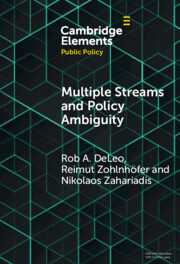
Multiple Streams and Policy Ambiguity
-
- Published online:
- 28 February 2024
- Print publication:
- 21 March 2024
-
- Element
- Export citation
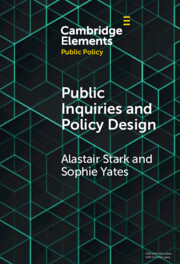
Public Inquiries and Policy Design
-
- Published online:
- 06 February 2024
- Print publication:
- 23 May 2024
-
- Element
- Export citation
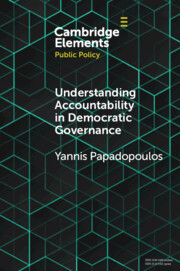
Understanding Accountability in Democratic Governance
-
- Published online:
- 28 February 2023
- Print publication:
- 09 March 2023
-
- Element
-
- You have access
- Open access
- HTML
- Export citation
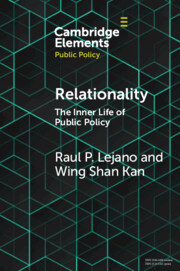
Relationality
- The Inner Life of Public Policy
-
- Published online:
- 23 November 2022
- Print publication:
- 22 December 2022
-
- Element
-
- You have access
- Open access
- HTML
- Export citation
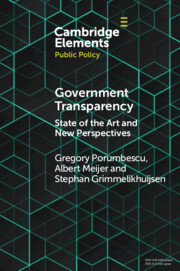
Government Transparency
- State of the Art and New Perspectives
-
- Published online:
- 15 June 2022
- Print publication:
- 07 July 2022
-
- Element
- Export citation
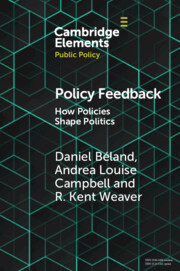
Policy Feedback
- How Policies Shape Politics
-
- Published online:
- 06 June 2022
- Print publication:
- 23 June 2022
-
- Element
-
- You have access
- Open access
- HTML
- Export citation
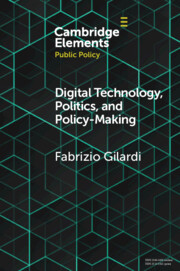
Digital Technology, Politics, and Policy-Making
-
- Published online:
- 25 May 2022
- Print publication:
- 23 June 2022
-
- Element
- Export citation
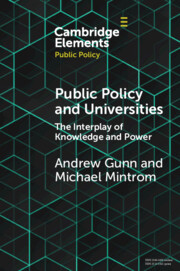
Public Policy and Universities
- The Interplay of Knowledge and Power
-
- Published online:
- 17 May 2022
- Print publication:
- 09 June 2022
-
- Element
- Export citation
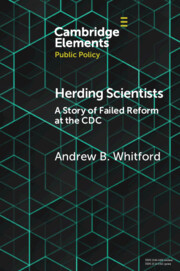
Herding Scientists
- A Story of Failed Reform at the CDC
-
- Published online:
- 11 April 2022
- Print publication:
- 12 May 2022
-
- Element
- Export citation
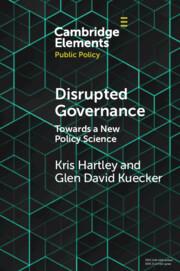
Disrupted Governance
- Towards a New Policy Science
-
- Published online:
- 16 February 2022
- Print publication:
- 17 March 2022
-
- Element
- Export citation
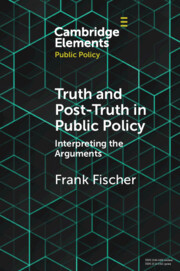
Truth and Post-Truth in Public Policy
-
- Published online:
- 18 November 2021
- Print publication:
- 09 December 2021
-
- Element
- Export citation
